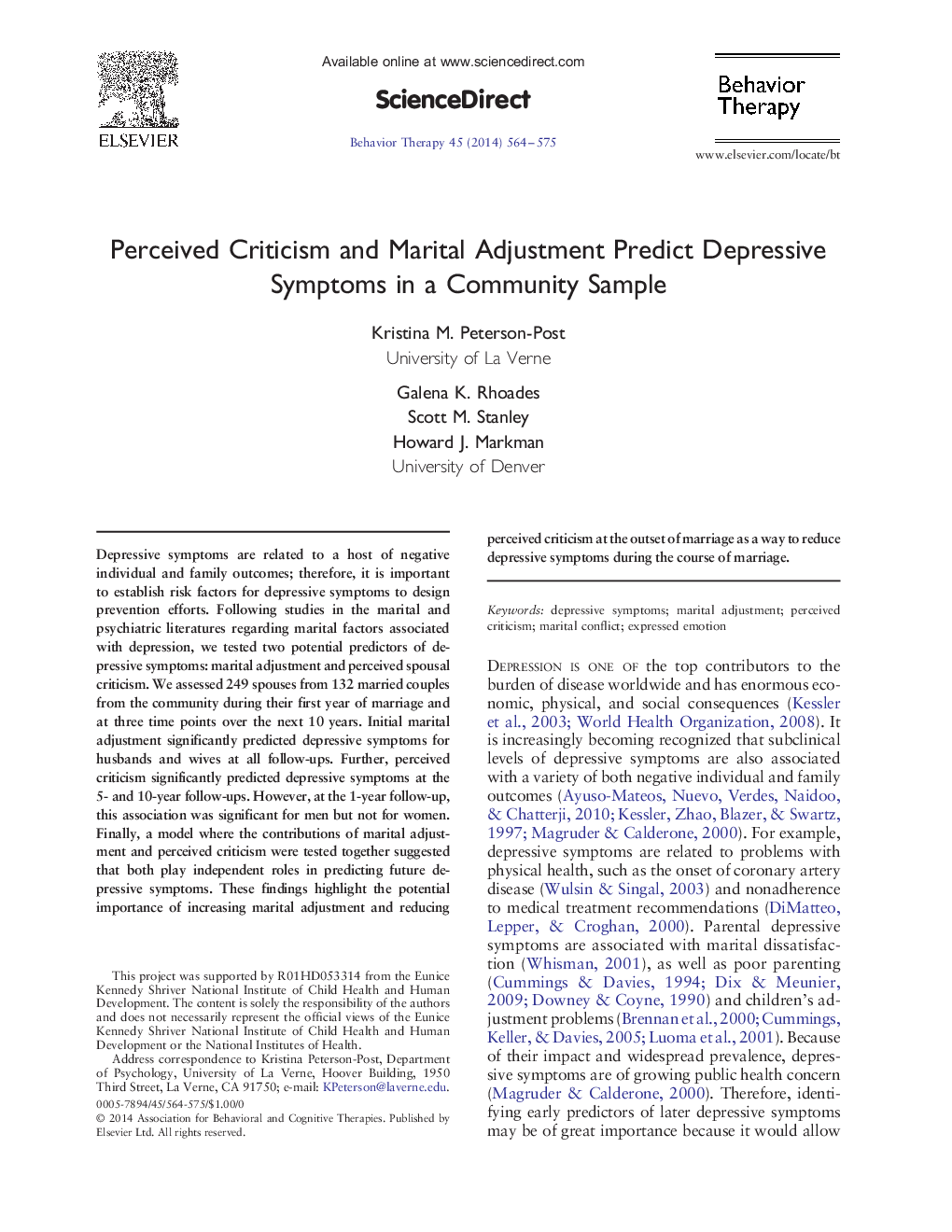| Article ID | Journal | Published Year | Pages | File Type |
|---|---|---|---|---|
| 901321 | Behavior Therapy | 2014 | 12 Pages |
•Marital discord and perceived criticism were tested to determine whether depressive symptoms can be predicted.•Newlyweds were assessed during the first year of marriage and up to 10 years later.•Gender differences emerged for predictions at the 1-year follow-up.•Five and 10 years later, initial marital discord and criticism predicted symptoms.•Discord and criticism predict symptoms, but associations differ by gender and time.
Depressive symptoms are related to a host of negative individual and family outcomes; therefore, it is important to establish risk factors for depressive symptoms to design prevention efforts. Following studies in the marital and psychiatric literatures regarding marital factors associated with depression, we tested two potential predictors of depressive symptoms: marital adjustment and perceived spousal criticism. We assessed 249 spouses from 132 married couples from the community during their first year of marriage and at three time points over the next 10 years. Initial marital adjustment significantly predicted depressive symptoms for husbands and wives at all follow-ups. Further, perceived criticism significantly predicted depressive symptoms at the 5- and 10-year follow-ups. However, at the 1-year follow-up, this association was significant for men but not for women. Finally, a model where the contributions of marital adjustment and perceived criticism were tested together suggested that both play independent roles in predicting future depressive symptoms. These findings highlight the potential importance of increasing marital adjustment and reducing perceived criticism at the outset of marriage as a way to reduce depressive symptoms during the course of marriage.
